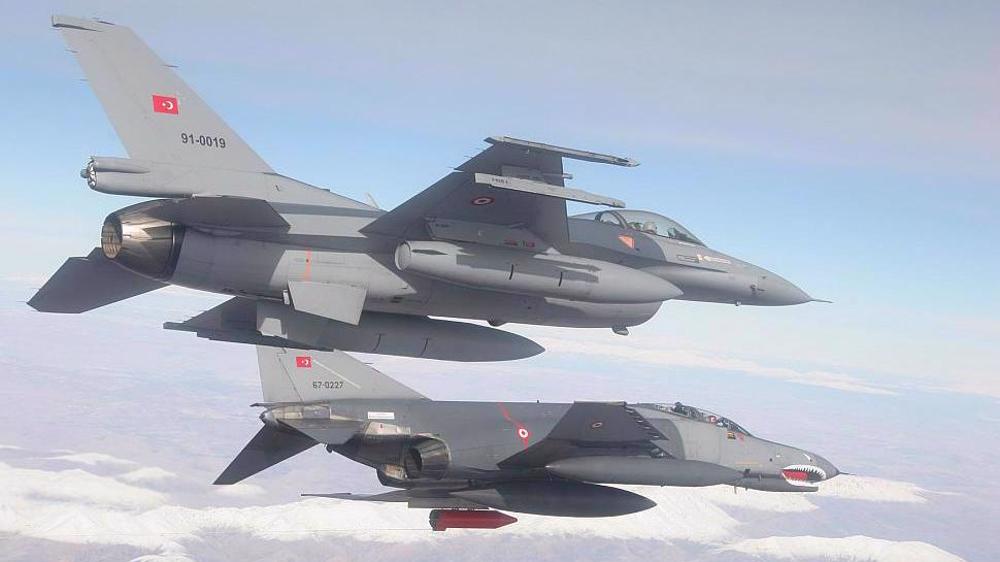Erdogan plans regional tour to help resolve Qatar row despite brushoff
Turkish President Recep Tayyip Erdogan says he may travel to several regional countries to help resolve a crisis revolving around Qatar, even as he has disturbed some of those countries by resolutely taking Doha’s side.
“I may have special [diplomatic] traffic after July 15. I want to visit the region once again. We might contribute to the reestablishment of dialog with a visit to the region. We are planning to visit Qatar, Kuwait, and Saudi Arabia in particular,” Erdogan said, Hurriyet Daily News reported on Monday.
He was talking to journalists on board his plane returning from the German city of Hamburg, where he participated in a summit of the Group of 20 countries.
The Turkish president said he had discussed the Qatar dispute with all the leaders he had met with at the G20 summit — including the US and Russian presidents — and had told all of them that a solution had to be found through dialog.
Saudi Arabia, the United Arab Emirates (UAE), Bahrain, and Egypt broke off diplomatic ties with Qatar on June 5, accusing Doha of supporting terrorism. They also suspended all land, air, and sea traffic with Qatar, which has denied the accusations against it and has refused to meet the “unreasonable” demands.

Kuwait and to a lesser extent Oman have been involved in mediation efforts in the dispute.
Erdogan referred to the efforts by Kuwait and said his regional tour should not be considered as an attempt at mediation. “What I mean [by this visit] is to contribute to the reestablishment of dialog between the parties,” he said.
The Turkish factor
Erdogan’s plan to travel to the regional countries comes despite bitter developments that have dragged Turkey — a non-Arab country — deeper into what the feuding Arab states themselves have sought to portray as a family dispute.
Turkey initially attempted to stay impartial, seeking to bring the disputing parties together through calls for dialog. But soon after the diplomatic standoff erupted, Turkey also approved the dispatch of thousands of more troops to a base it maintains in Qatar.
That decision was bound to upset Saudi Arabia and the other countries boycotting Doha. On June 22, they issued a list of 13 demands for Doha to meet in order for the relations to be restored, among them a demand that Qatar close the Turkish military base permanently.
Erdogan later attempted to allay that concern, offering to also build a military base in Saudi Arabia. Riyadh was not impressed, dismissing the offer and saying it needed no Turkish military presence to ensure its security. But Erdogan has also rejected the demands made to Qatar, to the dismay of Doha’s adversaries.
An ‘unjust’ siege well managed
Qatar has been weathering the blockade smoothly. Sitting on vast reserves of gas and being the world’s largest producer and exporter of liquefied natural gas (LNG), it has had little problem managing the impacts of the Saudi-led siege.

On Sunday, the chairman of Qatar Chamber, Sheikh Khalifa bin Jassim bin Mohammed Al Thani, called the blockade “unjust” but said it was affecting its enforcers more than it was affecting the Qatari economy. He said Qatar could immediately meet its needs for all kinds of goods by importing them from alternative countries at the same cost and with better quality, according to Al Jazeera.
Turkey, Iran, Oman, and Kuwait have all been sending increased cargoes of foodstuffs and fresh produce to Qatar since early after the siege began.
Separately, the governor of Qatar’s central bank said the country had ample foreign reserves and had no reason to worry about the restrictions imposed on it.
“This is the credibility of our system, we have enough cash to preserve any kind of shock,” Sheikh Abdullah Bin Saoud Al Thani told CNBC in an interview published on Monday.

But Qatar’s Attorney General Ali bin Fetais al-Marri has also said the country would seek damages from the blockading countries.
He said on Sunday that a special committee would be set up to “receive all claims, whether from the public sector, private sector, or individuals.” Complaints could be taken up at courts in Qatar or abroad, including in France and the United Kingdom, he said.
Such action will be particularly meaningful since one of the 13 demands made by the boycotting countries was that Qatar pay compensation for unspecified harm done as a result of its “support for terrorism.”
ICC weighs in
Meanwhile, the International Criminal Court (ICC) has said the rights of Qatari citizens are being violated as a result of the blockade.
ICC chief prosecutor Fatou Bensouda made the remark in a Sunday meeting in Doha with Emir Sheikh Tamim bin Hamad Al Thani and Foreign Minister Sheikh Mohammed bin Abdulrahman Al Thani.
‘For GCC, the end is nigh’
In separate remarks, a Qatari deputy prime minister said the Persian Gulf Cooperation Council (GCC) was nearing its end.
Abdullah bin Hamad al-Attiyah told Qatari daily al-Sharq on Sunday that the GCC, founded in 1981, now seemed to be in its dying stages.
The remark was an apparent acknowledgement of the schism among GCC members amid the dispute with Qatar. While members Saudi Arabia, the Emirates, and Bahrain have severed all ties with Doha, other members, Oman and Kuwait, have remained impartial.
The only other member is Qatar itself, and there is a likelihood that the Arab body, largely under the influence of Saudi Arabia, may ultimately eject Doha if the dispute escalates in one form or another.
Al-Attiyah also said that Qatar had learned an important lesson as a result of the blockade.
“We must be self-reliant, and we learned not to put too much trust in those of our brothers who laid the siege on Doha,” he said, according to a Persian translation by IRNA.
Tillerson due in Persian Gulf region
The US State Department has announced that Secretary of State Rex Tillerson will start a four-day visit to Kuwait, Qatar, and Saudi Arabia on Monday.
The trips are apparently aimed at discussing means to resolve the dispute with Qatar.

His trip to Kuwait, the first leg of his tour, comes at the invitation of the emir of Kuwait, according to the State Department.
Tillerson was in Istanbul, Turkey, on Sunday and Monday.
Tehran rejects Elon Musk’s role in release of Italian journalist as ‘media fantasy’
Pezeshkian: Iran open to talks but prepared to crush enemy if attacked
Araghchi: Iran-Russia strategic deal step toward ‘more just world’
UNRWA unraveled amid Israel's allegations, reduced intl. support
Palestinian journalist, a Sobh Media Festival awardee, killed in Gaza hours before truce
Jan. 15: ‘Axis of Resistance’ operations against Israeli occupation
VIDEO | Fears, hope in Gaza amid intensified ceasefire efforts
VIDEO | Press TV's news headlines














 This makes it easy to access the Press TV website
This makes it easy to access the Press TV website